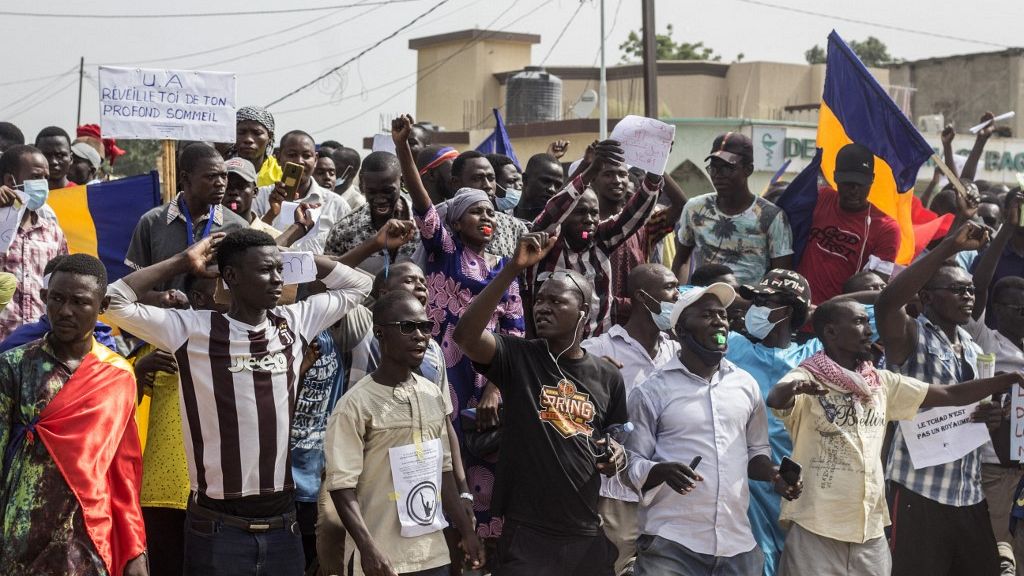The National Human Rights Commission (CNDH) of Chad estimates that 128 people died in the bloody October crackdown on opposition protests against the extension of the transitional government, in a report sent to Africanewsguru tv on Thursday.
On October 20, 2022, opposition demonstrations against the continuation in power for two more years of the transitional president, General Mahamat Idriss Déby Itno, had been repressed in blood in N’Djamena, the capital, and in other cities of the country.
The authorities had initially announced that around fifty people had died, mainly young people shot dead in the capital by the forces of order, before re-evaluating this figure at 73 deaths. However, NGOs had denounced the underestimated figures.
“The official figures are different from those obtained after the investigations of the National Human Rights Commission”, says the CNDH, which specifies that its work “mainly concerned the towns most affected by the repression, notably those of N’Djamena, Moundou, Doba, Koumra and Sarh”.
According to the investigators, 943 people were arrested, 435 detained, and 12 disappeared. The CNDH “attributes the main responsibility for all these human rights violations to agents invested with state authority, namely the FDS (security forces), who clearly failed in their tasks in the chain of events,” the report notes.
On “Black Thursday”, 621 people, according to the government, were arrested and then taken to Koro Toro, a high-security prison in the middle of the desert 600 km north of N’Djamena. They were then tried in a mass trial, without lawyers or independent media, after a month and a half in detention.
“Four lifeless bodies arrived in Koro-Toro, having died en route, and eight died as a result of ill-treatment” in this prison, the CNDH said.
The CNDH, created in 2019, has the mission of protecting and promoting human rights and transmitting opinions to the government, the president of the Republic and the National Assembly.











